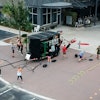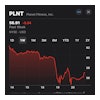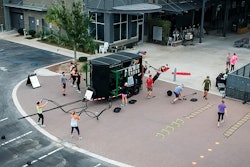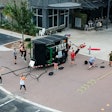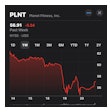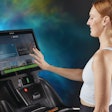An optimal intake of carbohydrates helps to ensure optimal glycogen stores and blood sugar levels but for high-volume endurance training.
GOOD NUTRITION SUPPORTS exercise training and performance. You've got to have fuel to produce energy. An optimal intake of carbohydrate foods helps to ensure optimal glycogen stores and blood sugar levels, not only on race day, but for high-volume endurance training, as well.
What exactly is glycogen?
Glycogen is the way the body creates a ready source of energy. The body makes glycogen from glucose. Glucose comes from the digestion of dietary carbohydrate.
After digestion, glucose circulates in the bloodstream and is known as "blood sugar" or "blood glucose." Both your liver and your muscles take glucose from the blood and make glycogen. (The other cells in your body take sugar from the blood for energy, too.) When energy is needed, both the liver and muscles can quickly convert the glycogen back into glucose.
During moderately intense and high-intensity exercise, muscles get most of their energy from the glucose supplied by muscle glycogen. The liver converts its glycogen to glucose when it senses a drop in blood glucose. Blood carries glucose to all of the body's cells. The brain is especially dependent on an adequate blood sugar level. If the liver cannot keep up with energy demands, blood sugar may drop, a condition known as exertional hypoglycemia, and which endurance athletes call "bonking."
Maximizing glycogen stores
The first step in maximizing glycogen stores for your clients is regular training. In general, athletes' muscles store more glycogen than the muscles of sedentary people. Training gears up glycogen storage metabolism.
The second step is to consume plenty of nutritious carbohydrate foods on a regular basis. Optimal glycogen stores are essential to support heavy-duty training. Plus, part of training is learning what foods work for your clients. Runners often encounter gastric distress. Abdominal cramps and diarrhea definitely cut into their performance!
Sports nutritionists recommend that, during training, athletes get 55 to 65 percent of their calories from carbohydrates, preferably from fruits, vegetables, whole grains and legumes. A high-carbohydrate drink or snack (1 gram of carbohydrate per kg of body weight) within the first hour after exercise is beneficial, as the body is geared up to replenish glycogen at this time, and it takes many hours to rebuild glycogen stores. Athletes should also consume regular snacks and meals following a workout.
Is carbohydrate loading less effective for women?
Individuals vary tremendously in their response to carbohydrate loading procedures. Some studies suggest that women do benefit from loading, although generally less than men. Women seem to benefit most when extra calories, as well as carbohydrates, are added to the diet for a few days before the event. Because women tend to consume fewer calories per kg body weight than men, they can't just shift fat or protein calories to carbohydrate calories.
REFERENCES
Akermark, C., I. Jacobs, M. Rasmusson and J. Karlsson. Diet and muscle glycogen concentration in relation to physical performance in Swedish elite ice hockey players. International Journal of Sport Nutrition 6 (3): 272-284, 1996.
Andrews, J.L., D.A. Sedlock, M.G. Flynn, et al. Carbohydrate loading and supplementation in endurance-trained women runners. Journal of Applied Physiology 95: 584-590, 2003.
Burke, L.M., J.A. Hawley, E.J. Schabort, et al. Carbohydrate loading failed to improve 100-km cycling performance in a placebo-controlled trial. Journal of Applied Physiology 88 (4): 1284-1290, 2000.
Clark, N. Nancy Clark's Sports Nutrition Guidebook. Human Kinetics: Champaign, Ill., 2003.
Fairchild, T.J., S. Fletcher, P. Steele, et al. Rapid carbohydrate loading after a short bout of near maximal-intensity exercise. Medicine and Science in Sports and Exercise 34 (6): 980-986, 2002.
Tarnopolsky, M.A., C. Zawada, L.B. Richmond, et al. Gender differences in carbohydrate loading are related to energy intake. Journal of Applied Physiology 91: 225-230, 2001.
Williams, M.H. Nutrition for Health, Fitness and Sport. McGraw-Hill: New York, N.Y., 2005.











